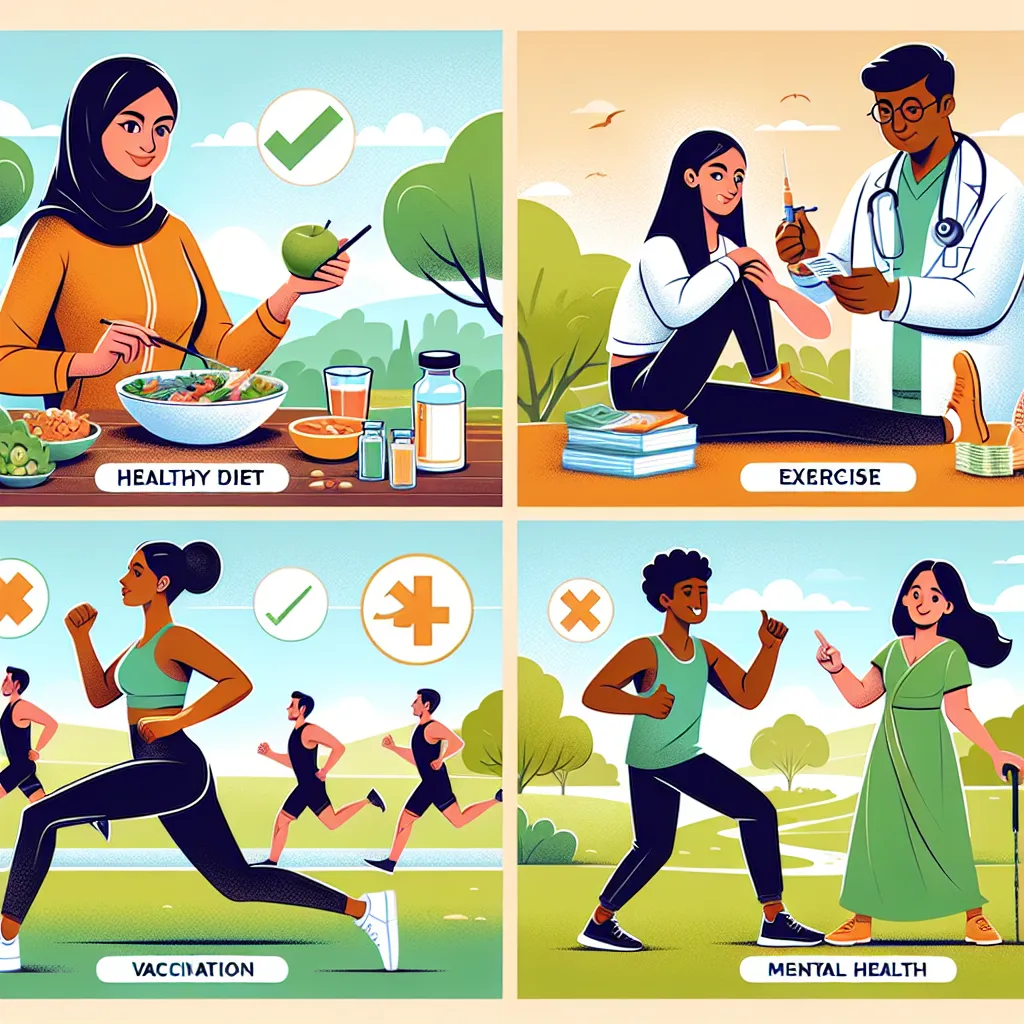Public health campaigns are a crucial topic in IELTS Writing Task 2, frequently appearing in recent years. As the global focus on health and well-being intensifies, this theme is likely to remain prevalent in future exams. Let’s explore a relevant question that has appeared in past IELTS exams and create a model answer to help you prepare effectively.

Analyzing the Question
Some people think that public health is the responsibility of the government while others think that people should be responsible for their own health. Discuss both views and give your opinion.
This question touches on the core of public health campaign benefits and individual responsibility. It requires you to:
- Discuss the view that public health is a government responsibility
- Explore the perspective that individuals should be responsible for their own health
- Provide your personal opinion on the matter
Model Answer
Public health has always been a contentious issue, with debates centering on whether it should be primarily managed by governments or left to individual responsibility. While both perspectives have merit, I believe that a balanced approach incorporating both government initiatives and personal accountability is the most effective way to address public health concerns.
On one hand, proponents of government responsibility argue that public health issues often require large-scale interventions that individuals cannot manage alone. Governments have the resources and authority to implement widespread health campaigns, regulate food and drug safety, and provide essential healthcare infrastructure. For instance, vaccination programs, which have eradicated diseases like smallpox, demonstrate the power of government-led public health initiatives. Moreover, governments can enact policies to protect citizens from health hazards, such as banning smoking in public places or implementing food labeling requirements.
On the other hand, those who advocate for individual responsibility contend that personal choices significantly impact one’s health. They argue that each person should take charge of their diet, exercise routine, and overall lifestyle to maintain good health. This view emphasizes the importance of education and empowerment, enabling individuals to make informed decisions about their health. Proponents of this perspective might point out that even the most comprehensive government health programs can be ineffective if individuals do not take personal responsibility for following recommendations and maintaining healthy habits.
In my opinion, the most effective approach to public health combines both government intervention and individual responsibility. Governments should provide the framework for good public health through policies, infrastructure, and education. This includes funding for health research, maintaining hospitals, and running public health campaigns. However, individuals must also play their part by making healthy choices in their daily lives and actively participating in preventive health measures.
For example, a government might launch a campaign to reduce obesity rates by improving food labeling, taxing sugary drinks, and providing more public spaces for exercise. However, the success of such a campaign ultimately depends on individuals choosing to read labels, opt for healthier beverages, and utilize the exercise facilities provided. This synergy between government initiatives and personal action can lead to more substantial and lasting improvements in public health.
In conclusion, while governments and individuals both have crucial roles to play in public health, the most effective strategy involves a collaborative effort. By combining government-led public health campaigns with a culture of personal health responsibility, societies can achieve better overall health outcomes and create a more resilient population in the face of health challenges.
(Word count: 399)
Writing Tips for This Topic
When addressing this type of question in IELTS Writing Task 2, keep the following points in mind:
- Balance: Ensure you discuss both sides of the argument equally before giving your opinion.
- Specific examples: Use concrete examples to support your points, such as successful government health campaigns or instances where personal responsibility has led to improved health outcomes.
- Coherence: Use linking words and phrases to connect your ideas smoothly.
- Vocabulary: Employ a range of health-related vocabulary to demonstrate your language proficiency.
Key Vocabulary to Remember
- Public health (noun) /ˌpʌblɪk ˈhelθ/ – The health of the population as a whole
- Intervention (noun) /ˌɪntəˈvenʃn/ – Action taken to improve a situation
- Infrastructure (noun) /ˈɪnfrəstrʌktʃə(r)/ – Basic physical and organizational structures needed for operation
- Preventive (adjective) /prɪˈventɪv/ – Designed to keep something from occurring
- Empowerment (noun) /ɪmˈpaʊəmənt/ – The process of becoming stronger and more confident
- Resilient (adjective) /rɪˈzɪliənt/ – Able to withstand or recover quickly from difficult conditions
- Synergy (noun) /ˈsɪnədʒi/ – The interaction of elements that when combined produce a total effect greater than the sum of the individual elements
In conclusion, understanding the benefits of public health campaigns and the balance between government and individual responsibility is crucial for addressing this type of IELTS Writing Task 2 question effectively. As you prepare, consider practicing with similar topics such as the role of education in public health, the impact of technology on health awareness, or the challenges of implementing global health initiatives. These related themes will help you develop a broader perspective on public health issues and enhance your ability to discuss them comprehensively in your IELTS exam.
For more insights on related topics, you might find these articles helpful:
Remember, mastering this topic not only prepares you for potential IELTS questions but also equips you with valuable knowledge about the crucial interplay between public policy and personal health choices in our modern society.